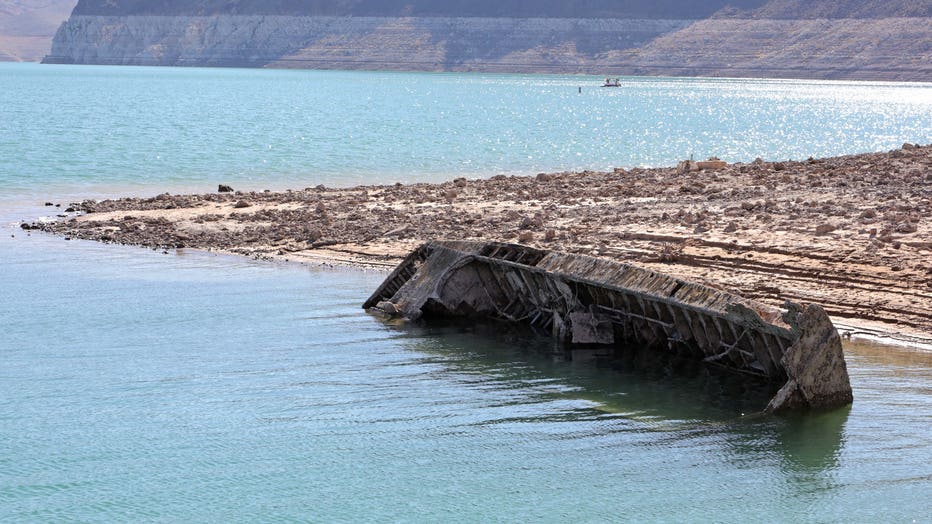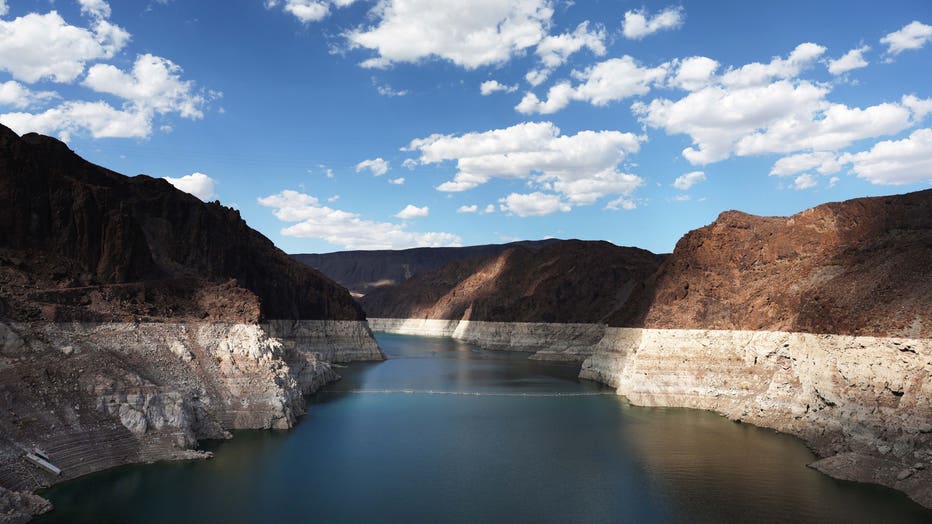World War II-era boat emerges from shrinking Lake Mead
LAS VEGAS - A sunken boat dating back to World War II is the latest object to emerge from a shrinking reservoir that straddles Nevada and Arizona.
The Higgins landing craft that has long been 185 feet (56 meters) below the surface is now nearly halfway out of the water at Lake Mead.
The boat lies less than a mile from Lake Mead Marina and Hemingway Harbor.
It was used to survey the Colorado River decades ago, sold to the marina and then sunk, according to dive tours company Las Vegas Scuba.

LAKE MEAD NATIONAL RECREATION AREA, NEVADA - JULY 01: A sunken World War II-Era Higgins landing craft that used to be nearly 200 feet underwater is being revealed near the Lake Mead Marina as the waterline continues to lower on July 01, 2022 in the L (Photo by Ethan Miller/Getty Images)
Higgins Industries in New Orleans built several thousand landing craft between 1942 and 1945, the Las Vegas Review-Journal reported. Around 1,500 "Higgins boats" were deployed at Normandy on June 6, 1944, known as D-Day.
The boat is just the latest in a series of objects unearthed by declining water levels in Lake Mead, the largest human-made reservoir in the U.S., held back by the Hoover Dam. In May, two sets of human remains were found in the span of a week.
Experts say climate change and drought have led to the lake dropping to its lowest level since it was full about 20 years ago.
As water levels drop at both Lake Mead and Lake Powell upstream on the Arizona-Utah line, states in the U.S. West increasingly face deeper cuts to their supply from the Colorado River. The lower levels also impact hydropower produced at Hoover Dam and Glen Canyon Dam, which holds back Lake Powell.

LAKE MEAD NATIONAL RECREATION AREA, ARIZONA - JUNE 24: A 'bathtub ring' of mineral deposits left by higher water levels is visible at the drought-stricken Lake Mead on June 24, 2022 in the Lake Mead National Recreation Area, Arizona. The U.S. Bureau (Photo by Mario Tama/Getty Images)
U.S. Bureau of Reclamation Commissioner Camille Touton said last month that the agency would take action to protect the system if the seven states in the Colorado River basin don’t quickly come up with a way to cut the use of up to 4 million acre-feet of water — more than Arizona and Nevada’s share combined.
An acre-foot is about 325,850 gallons (about 1.23 million liters). An average household uses one-half to one acre-foot of water a year.
The two states, California and Mexico already have enacted voluntary and mandatory cuts. Water from some reservoirs in the upper basin — Wyoming, New Mexico, Colorado and Utah — has been released to prop up Lake Powell.
Farmers use a majority of the river’s supply.

